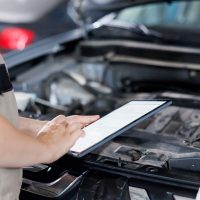How Many Repair Attempts Must I Allow Before I Have a Lemon Law Claim in California?

If you’ve recently purchased or leased a new vehicle in California, you expect it to run smoothly. However, if your car is spending more time in the repair shop than on the road, you may be dealing with what’s known as a “lemon.” Under California’s Lemon Law, you may be entitled to a refund, other compensation, or a replacement vehicle if your car has recurring issues that affect its safety, value, or usability. One common question vehicle owners face is: How many repair attempts must be made before I can file a Lemon Law claim? You’ll find the answer to that question below. For specific advice tailored to your particular situation, contact Nita Lemon Law Firm to discuss your claim with a skilled and experienced California lemon law attorney.
Understanding the California Lemon Law
California’s Lemon Law, found in the Song-Beverly Consumer Warranty Act and the Tanner Consumer Protection Act, protects consumers who buy or lease defective vehicles. The law applies to new and possibly used vehicles that are still under the manufacturer’s original warranty and ensures that car manufacturers honor their promises to deliver a reliable product.
To qualify as a lemon, a vehicle must meet certain conditions, one of the most important being the number of unsuccessful repair attempts. Here’s how California determines when a vehicle is considered a lemon.
General Guidelines for Repair Attempts
Under California Lemon Law, the number of repair attempts required before a vehicle qualifies as a lemon varies depending on the nature of the defect. As a general rule, one of the following three categories might apply:
-
Serious Safety Defects
If the defect poses a serious safety risk, such as issues with brakes, steering, or airbags, California law typically requires two or more repair attempts before the car qualifies as a lemon. Serious safety defects are problems that could cause severe injury or death if left unaddressed. If the manufacturer or dealer cannot repair the issue after two attempts, you may have grounds for a Lemon Law claim. -
Less Critical Defects
For non-safety-related issues that still impact the vehicle’s functionality, use, or value, such as a faulty electrical system or recurring engine problems, the manufacturer or dealer is usually given at least four repair attempts. If the issue remains unresolved after four attempts, the vehicle could be classified as a lemon. -
Extended Time in the Repair Shop
Even if a defect doesn’t fit neatly into the categories above, California Lemon Law may still apply if your car has been out of service for an extended period of time. Specifically, if your vehicle is in the repair shop for 30 or more days (cumulative) within the first 18 months or 18,000 miles of ownership, you may be presumed to have a valid claim, regardless of the type of defect. These 30 days do not need to be consecutive.
The “Reasonable” Repair Opportunity Standard
The key to any Lemon Law claim is whether the manufacturer or authorized dealer has had a “reasonable number of attempts” to repair the defect. While the law provides general guidelines, what is considered “reasonable” may vary depending on the circumstances. For instance, a single repair attempt might be sufficient if the defect poses an immediate and dangerous risk to your safety. On the other hand, for minor defects, a longer repair window may be granted to allow time for diagnosis and resolution.
Keep Detailed Records of Repair Attempts
To bolster your Lemon Law claim, it’s critical to maintain detailed records of every repair attempt, including:
- Dates of each visit to the repair shop
- Specific problems reported to the dealer or manufacturer
- Copies of work orders, receipts, and invoices
- Communications with the manufacturer or dealer about the defect
These records are essential for demonstrating that the manufacturer has been given a reasonable number of opportunities to fix the problem but failed to do so. Without proper documentation, it may be difficult to prove your case.
What Should You Do If Your Vehicle Qualifies as a Lemon?
If you believe your vehicle qualifies as a lemon under California law, the next step is to file a claim. Under California lemon law, you may be entitled to:
- A full refund of your purchase price, including taxes, registration, and any incidental costs.
- A replacement vehicle of the same or comparable value.
- Reimbursement for repair and towing costs.
Before proceeding with your claim, it’s recommended to consult with an experienced California Lemon Law attorney who can guide you through the process, help you understand your rights, and ensure you receive the compensation you deserve.
Contact Nita Lemon Law Firm for Assistance With Your California Lemon Law Claim
California’s Lemon Law offers significant protection to vehicle buyers, but determining when your car qualifies as a lemon can be confusing. While the law generally requires two repair attempts for serious safety defects and four for other issues, the specific circumstances of your case may impact the number of attempts considered “reasonable.” If you think your vehicle might be a lemon, contacting a knowledgeable attorney who practices specifically in California Lemon Law can help you understand your legal options and secure the best possible outcome.
If you’re dealing with ongoing vehicle problems and want to know if you have a Lemon Law claim, contact the Nita Lemon Law Firm today for a free consultation. Please call 213-232-5055 in Los Angeles or 877-921-5256 anywhere in California. You can also submit a free case evaluation request at www.nitalemonlaw.com, or email nick@nitalemonlaw.com for a fast response.